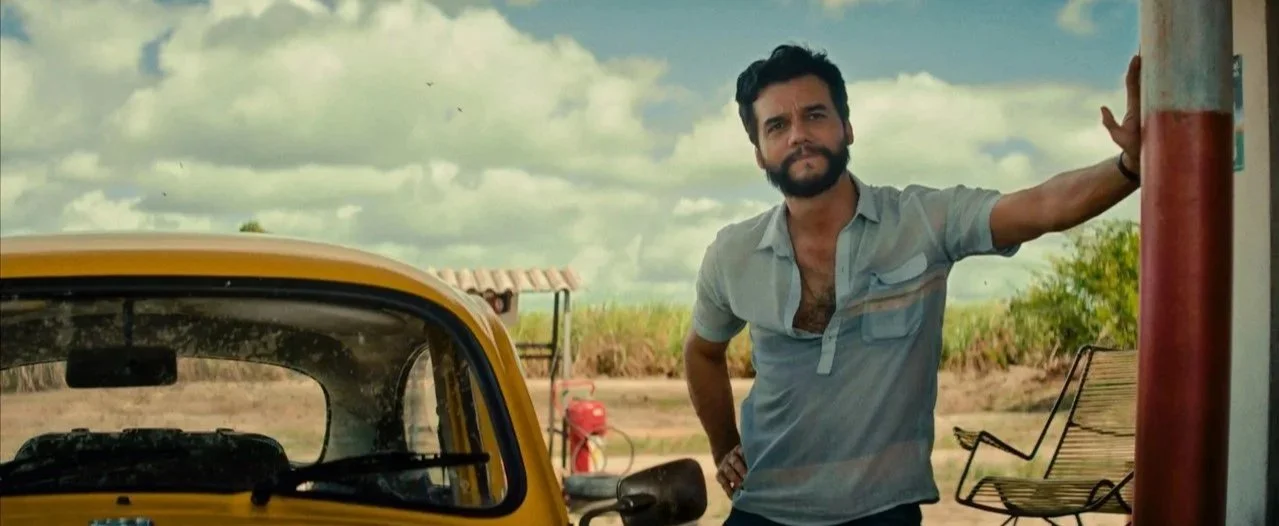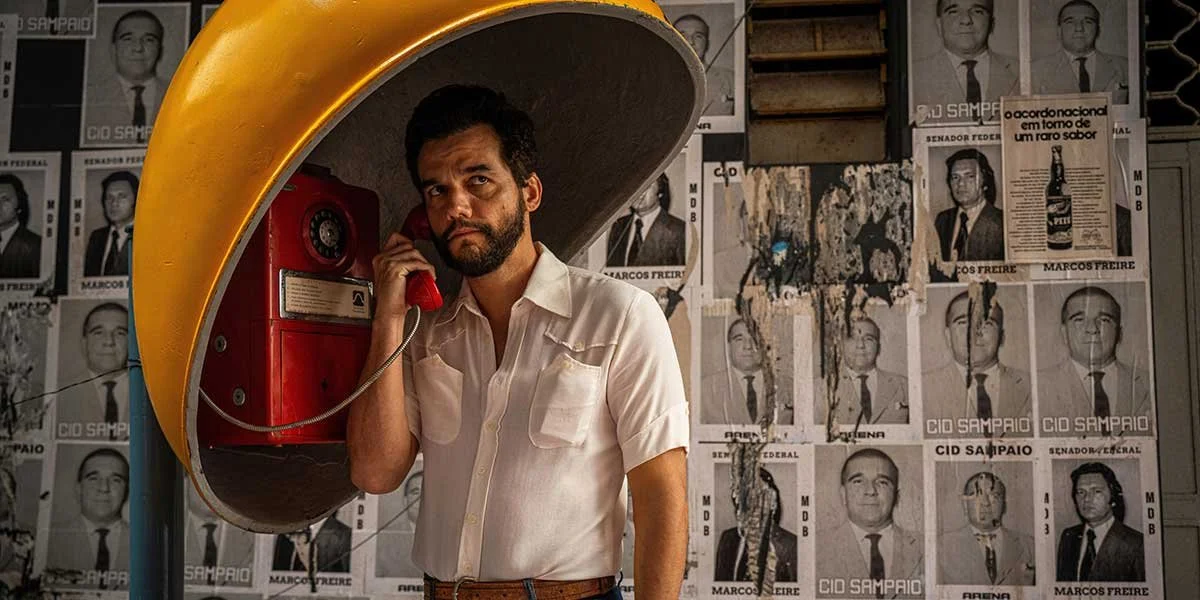‘The Secret Agent’ Review: Kleber Mendonça Filho’s Lesson in Film and Political History [TIFF 25]
Kleber Mendonça Filho gives us the most important political film of the year with The Secret Agent, a thriller fluent in both film and political history, with a captivating performance from Wagner Moura anchoring the picture.
Kleber Mendonça Filho’s movies are not what they seem. This was highly evident in his 2019 co-directed feature Bacurau, but it is seemingly more the case with The Secret Agent, which is having its Canadian Premiere at the Toronto International Film Festival this week. What begins as a razor-sharp political thriller, focusing on a researcher’s desire to reunite with his son during Brazil's military dictatorship in 1977, becomes something else entirely by the time it reaches its sobering final shot. More impressively, Mendonça Filho expertly links all of the threads that eventually led to where we are now, as the country will always recover from the darkest period of its History, no matter how long it has been since then.
Kleber is, above all else, an ardent cinephile who has shared his passion for the medium throughout his work as a film critic, on social media (most notably on Letterboxd), and in his own films. His films are not confined to one genre – they are fluent in cinema and political history, often blending different styles and formal perspectives in the same sequence. Consider the opening credits of The Secret Agent: a slow, deliberately paced ride through the Brazilian countryside as our protagonist, Marcelo (Wagner Moura), listens to Chicago’s “If You Leave Me Now.” It’s breezy and gives the sense to the audience that this is how the movie will be paced.
That is, until a sharp right turn occurs at the midpoint of its credits, foreboding a sentiment of high dread and paranoia that will be at the heart of the thriller, where Marcelo is seeking asylum in Recife to be closer to his young son, Fernando, who is unaware of the climate he lives in. He’d rather escape from the scorching Brazilian heat by drawing various re-creations of the Jaws poster, which he desperately wants to see. It’s at that point where the filmmaker cues in John Williams’ music from Steven Spielberg’s masterpiece, before transporting us to the cinema itself, where Marcelo’s father (Carlos Francisco) operates. Immediately, we have a sense that film, whether directly or indirectly, will have a massive impact on how the structure of The Secret Agent will be shaped.
To give anything away would rob you of the pleasures of discovering this genre-blender for yourself. However, as I mentioned in the opening of this review, everything is not as it seems. The political thriller set up by its lengthy first part begins to unfold in the present day, as memories of Marcelo’s story are investigated. However, the information available, through newspaper articles, tape recordings, and even a simple Google search, is extremely limited. As dense and as complex as the story unfolds, especially in how the present-day sequences don’t entirely respond to what Mendonça Filho stages in the 1970s (both moments are shot with different lenses and colour schemes, captivatingly so, I may add), The Secret Agent’s message is heard loud and clear, without direct handholding, too.
At this year’s Cannes Film Festival, Kleber Mendonça Filho was the first Brazilian filmmaker to win the Best Director award since Glauber Rocha for O Dragão da Maldade Contra o Santo Guerreiro (also known as Antonio Das Mortes), a strong contender for the best movie ever made. It seems fitting to me, because with The Secret Agent, Kleber may be the most important Brazilian filmmaker since Rocha, one whose opposition to traditional cinema for a more politically-charged, formally inventive art form (read The Aesthetics of Hunger) was a key turning point for the creation of the Cinema Novo movement in its first phase.
The Secret Agent is as politically-charged and speaks raw truth to power as it is formally mind-blowing, with frequent uses of split diopters and unique camera angles to exacerbate the sentiment of dread or create a different atmosphere entirely. Mendonça Filho even has time to bathe in genre pleasures with an interlude involving a hairy leg and Wilhelm screams. The less said about that sequence, the better. Still, it’s completely different from anything else in the picture, even its amateurishly staged gunfight near the movie’s denouement, which undoubtedly recalls Rocha, specifically the climax of Antonio Das Mortes.
It’s both politically and cinematically cogent – the only way Kleber knows how to make art that will undoubtedly stand the test of time long after he has departed this Earth. Because cinema is politics, and politics itself has always been more powerful on the screen than outside of it. Look at where we are now. It’s all filtered through the prism of our big (or portable) screens. We’re on them all the time and eventually succumb to the black hole of bias. That’s where propaganda can be the most effective. This is explored through Wagner Moura's incredible performance, and the best of his career as a man of multiple façades who hides his true nature from himself and the audience. However, it’s in the movie’s conclusion that his turn becomes more powerful, and the scars of the military dictatorship are still felt in the character he’s portraying, as screens become less and less important, even removed from his childhood.
Many will compare and contrast the present-day ending of the film with Walter Salles’ I’m Still Here, which also employs a similar device to what Mendonça Filho stages in the final scene of his movie. However, both couldn’t be more different, because the messaging in Kleber’s film is of a different nature, more urgent and timely, specifically related to our cultural institutions in decay. It’s a simple gesture, but one that holds immense power, as Mendonça Filho encourages all of us to cherish our cinemas and other cultural locations before they go the way of the Guzzo. What can be done to save them in an era where they hold little to no significance? Kleber doesn’t have that answer for us, and neither do we, but he will try to instill some hope in us that they are worth preserving, regardless of the scars these buildings carry within history.
If cultural institutions all collapse, so will literacy (which is already dwindling) and our ability to understand a world in constant evolution. The warning is heard. What will we do to prevent a culture from further declining? It may not have been a question that Kleber Mendonça Filho had at the center of The Secret Agent, but it’s definitely one that leaves us wondering where this entire planet is going if all cinemas and all cultural locations go by the next decade…


